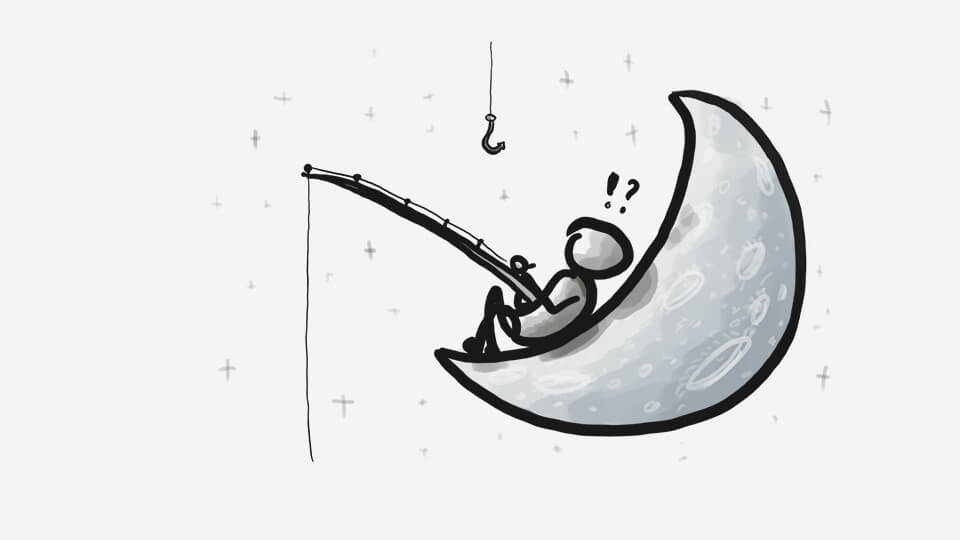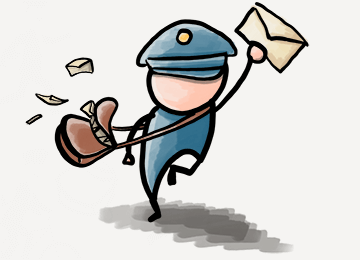Each day, for the last month, I only worked until I got restless or distracted. So a couple of hours at most. And that’s it. No procrastination, no vegging out waiting for inspiration to return, nothing. Only a couple of hours of highly focused work each day, and then a whole lot of leisure.
This article covers the final results of my productivity experiment.
Oh, and I’m covering week #3 and #4 in one article because, frankly, week #3 wasn’t that revolutionary. Week #4, on the other hand, now that was when everything came together.
Week #3 (The Interesting Bits)
A total of 18 hours of work. Generated new leads, published three articles, pitched my ideas to five different magazines (no luck). On Saturday, I ran a workshop for writers in Berlin. Still, getting ridiculous amounts of work done in no time. Feels like cheating.
The draw of old habits is getting stronger. It’s easier to procrastinate than to get on with difficult new work.
Week #4: The Numbers
- Monday: 7.5h
- Tuesday: 4h
- Wednesday: 6.5h
- Thursday: 4.5h
- Friday: 2.5h
- Sat: 2h
That’s a total of 27 hours. More than the last three weeks, and frankly, work felt great! I found a sense of momentum and it stimulated me like never before. Adapting to a shorter but more focused schedule, with more time to rest, has paradoxically left me with more time and energy.
Take a look at this:
Week #4: Work Done
Published two articles. Wrote a few thousand words of my book. Generated new business leads. Ran a giveaway on Twitter for new writers. Syndicated my content to Medium and Patreon. Organized another workshop in Berlin on Saturday (the fourth one). Filled my social media calendar, and met with a company that would like me to re-do copywriting on their website. Edited a few thousand words of work for a client. Re-did some of my website and newsletter copy. Gathered the most frequent feedback I give to writers, so I have it all in one place. Experimented with social listening. Finally worked out my customer personas.
On top of that, the relaxed schedule has allowed me to exercise and cook every day, nearly finish listening to Harry Potter und der Stein der Weisen audiobook (in German), and play Horizon Zero Dawn (also in German) to speed up learning.
As to my backlog of tasks… Wait, what backlog?
Final Observations
- Some things are simply not worth doing. Like week #3 update. It wasn’t that interesting, and therefore worth neither your time nor mine. A faster work schedule helps you clear all the nonsense from your presumed to-do list. You know, the one you never get to. Limited time brings amazing clarity.
- Sayonara procrastination and resistance. Do you know what I did when I caught myself procrastinating? I closed my laptop and called it a day. “But-but-but,” my brain went, “but you’re not done yet!” No? Then why were you slacking off? To which it had no answer. Because of this stern approach, I got behind on some important work, but my brain learned it needs to get things done while it still has the time. Because once I close that laptop, there’s no logging back in the afternoon or the evening.
- I want more experiments. I’m horrible when it comes to habit formation. As soon as one starts bearing fruit, I consider it done and start with another. And then I fall behind on both, try to keep up, and… Let’s just say it’s a vicious cycle. But working on just one habit—damn the consequences—for a whole month? It was mind-blowing. Now I want to try new things.
- Being stuck is a complete waste of time. Week #4 got off to a rocky start when I sat down to quickly edit one of my articles the first thing on Monday. The article wasn’t that great, alright? I struggled to find a point of it, and I ended up staring at the screen for 2 hours straight, playing with sentences, and wasting time on bad material. 2 hours. That’s longer than this article has taken me (95 minutes from zero to published). I would be better off writing something new and polishing that up.
- Punching out. I think I should do something distinct when I finish work for the day because all the open loops—tasks and whatnot—hanging over my head for the rest of the day. It’s my instinct to sit down and take care of them. Not getting back to work takes effort. Perhaps my old habits die harder than Bruce Willis?
- Time slows down. After getting so much done so quickly, you can’t believe the clock. You’re more engaged, and time sort of flows while you work.
- I learned to trust myself. Many (though not all) of my problems have worked themselves out while I wasn’t paying attention. Concepts like “hey, maybe you should examine your customer personas to help you in your business?” sort of popped out of the blue. I guess it’s a result of a rested brain saying thank you.
- More time to do something new and interesting. After a 4-week long armageddon sweeping my to-do list clean, I really got to thinking about other cool opportunities waiting for me out there. The weekly meetup for writers in Berlin is one such strange development that arose from the ashes of my previous productivity system. Helping companies with their copywriting is another.
- 15% of a task is enough. I borrowed this from agile methodologies, but 15% of a task is often enough to get the momentum going. Why waste time planning, preparing, and carefully executing if you can quickly prototype to see whether something works or not? Again, the meetup comes to mind. I started it pretty much by saying, “I’m new, I know about writing. Anyone wanna come?” and people did. We meet every Saturday now.
- Must, should, and could. Things you feel you must do tend to hold you back from doing the things you should be doing. And those, in turn, tend to distract you from all the interesting things you could be doing. This month, I took a kebab shaving knife to my list of musts and shoulds. It turns out most were just figments of my imagination. I feared my business would fall apart, but no, it picked up speed.
Open Problems
Unsurprisingly, not everything worked out the way I envisioned it.
However, the point of the experiment was to roll with it and see what happens, so that’s what I did.
- Is writing my book work? I’m still not sure. I want to make a living writing, so it is work in some sense, but should writing feel like work? The experiment made it slip into the land of extremely important, but totally not urgent. And I don’t know what to do with that.
- What’s work, what’s pleasure? Is writing this article work or pleasure? I’m doing it on Saturday evening, enjoying a glass of rum, and it doesn’t feel like work. At the same time, it’s a part of my online platform. To make matters more complicated, there’s the writing that I tend to enjoy, but then there’s also the editing, formatting for web, and announcing on social media… Hardly something a sane person wants to do on a free Saturday. Maybe I should write for pleasure, and do all those other things during my working hours? But that just leaves tasks hanging in the air, and results in a mental itch.
To me, those problems might also signal that when it comes to my personal goals, I lack the kind of clarity I have with my business goals. By stripping all the nonsense surrounding the things I do every day, I merely revealed a deeper problem that I need to address. I’ll let you know how figuring out that one goes.
All in all, a fantastic experiment, and I’m very happy I stumbled upon Do Nothing by Celeste Headlee. Both the book and the productivity experiment she proposed have been eye-opening.
I won’t be going to my old habits anytime soon.
Enjoyed the read? Become a Patron to unlock access to more great stories, written and published regularly by yours truly, Sebastian Hetman.


I just read whole expetimet articles. It is so interesting. Really enjoy it… and btw… what is best in every jorney, it is the jorney itself, not the end of it… remember “bunkrów nie ma, ale też jest zajebiscie” ;-). I like your work/plesure dilema, not sure if you ever solve it however keep trying! All the best Sebastian for you and your lovely wife, I’m happy to read she is ok 🙂
This is the most Paweł comment imaginable. Thanks for cheering me on, mate.